Make muscle pain a memory with ginger
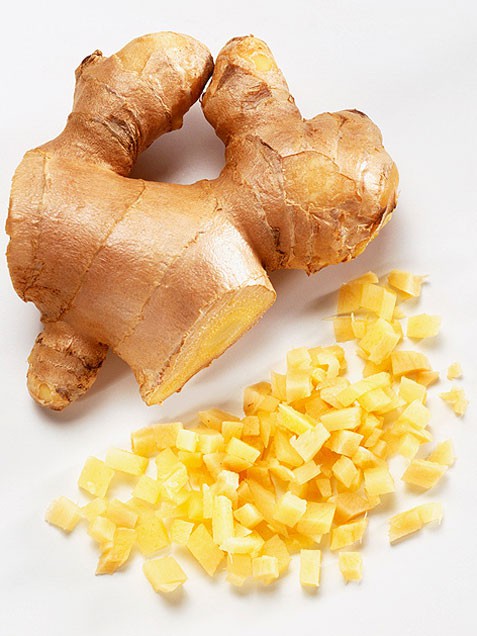
When Danish researchers asked achy people to jazz up their diets with ginger, it eased muscle and joint pain, swelling and stiffness for up to 63 percent of them within two months. Experts credit ginger’s potent compounds called gingerols, which prevent the production of pain-triggering hormones. The study-recommended dose: Add at least 1 teaspoon of dried ginger or 2 teaspoons of chopped ginger to meals daily.
Cure a toothache with cloves
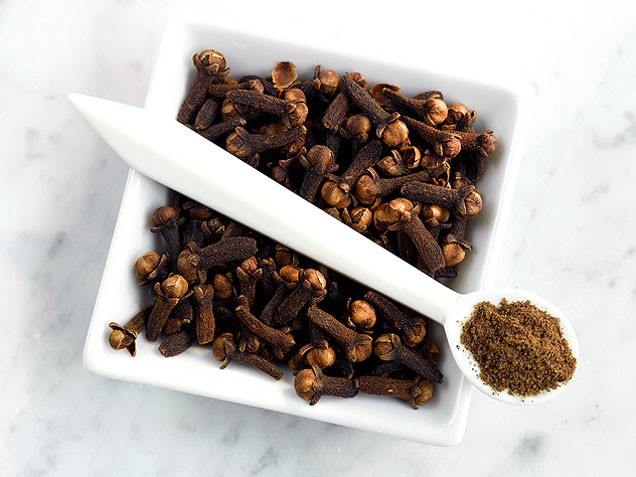
Got a toothache and can’t get to the dentist? Gently chewing on a clove can ease tooth pain and gum inflammation for two hours straight, say UCLA researchers. Experts point to a natural compound in cloves called eugenol, a powerful, natural anesthetic. Bonus: Sprinkling a 슠 teaspoon of ground cloves on meals daily may also protect your ticker. Scientists say this simple action helps stabilize blood sugar, plus dampen production of artery-clogging cholesterol in as little as three weeks.
Heal heartburn with cider vinegar
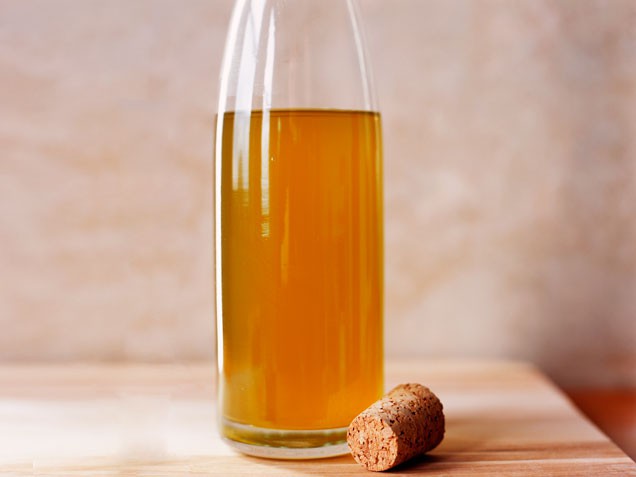
Sip 1 tablespoon of apple cider vinegar mixed with 8 ounces of water before every meal, and experts say you could shut down painful bouts of heartburn in as little as 24 hours. “Cider vinegar is rich in malic and tartaric acids, powerful digestive aids that speed the breakdown of fats and proteins so your stomach can empty quickly, before food washes up into the esophagus, triggering heartburn pain,” explains Joseph Brasco, M.D., a gastroenterologist at the Center for Colon and Digestive Diseases in Huntsville, AL.
Erase earaches with garlic
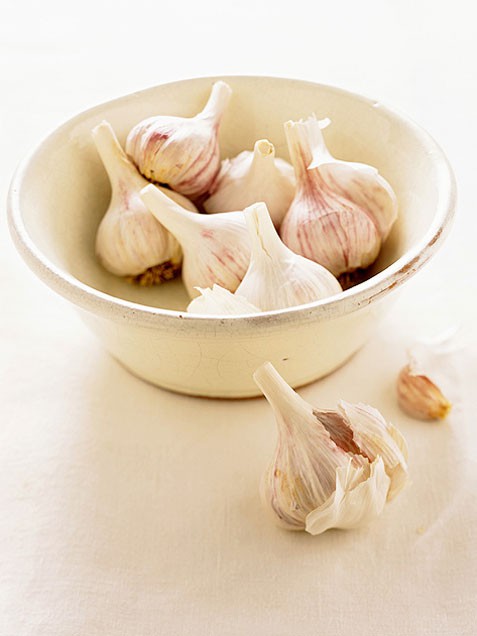
Painful ear infections drive millions of Americans to doctors’ offices every year. To cure one fast, just place two drops of warm garlic oil into your aching ear twice daily for five days. This simple treatment can clear up ear infections faster than prescription meds, say experts at the University of New Mexico School of Medicine. Scientists say garlic’s active ingredients (germanium, selenium, and sulfur compounds) are naturally toxic to dozens of different pain-causing bacteria. To whip up your own garlic oil gently simmer three cloves of crushed garlic in a half a cup of extra virgin olive oil for two minutes, strain, then refrigerate for up to two weeks, suggests Teresa Graedon, Ph.D., co-author of the book, Best Choices From The People’s Pharmacy. For an optimal experience, warm this mix slightly before using so the liquid will feel soothing in your ear canal.
Chase away joint and headache pain with cherries
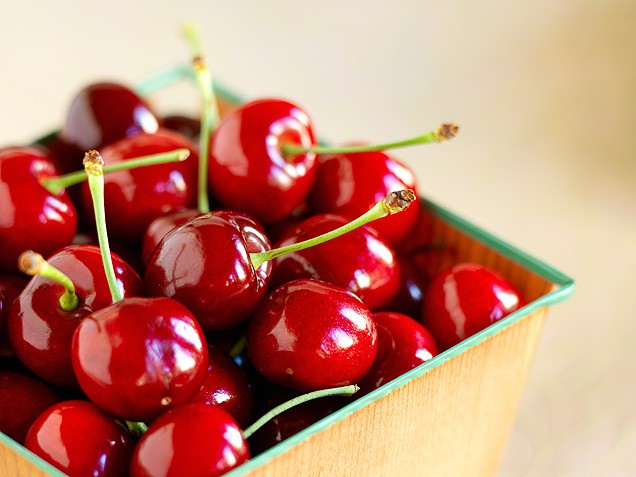
Latest studies show that at least one in four women is struggling with arthritis, gout or chronic headaches. If you’re one of them, a daily bowl of cherries could ease your ache, without the stomach upset so often triggered by today’s painkillers, say researchers at East Lansing ’s Michigan State University . Their research reveals that anthocyanins, the compounds that give cherries their brilliant red color, are anti-inflammatories 10 times stronger than ibuprofen and aspirin. “Anthocyanins help shut down the powerful enzymes that kick-start tissue inflammation, so they can prevent, as well as treat, many different kinds of pain,” explains Muraleedharan Nair, Ph.D., professor of food science at Michigan State University . His advice: Enjoy 20 cherries (fresh, frozen or dried) daily, then continue until your pain disappears.
Fight tummy troubles with fish
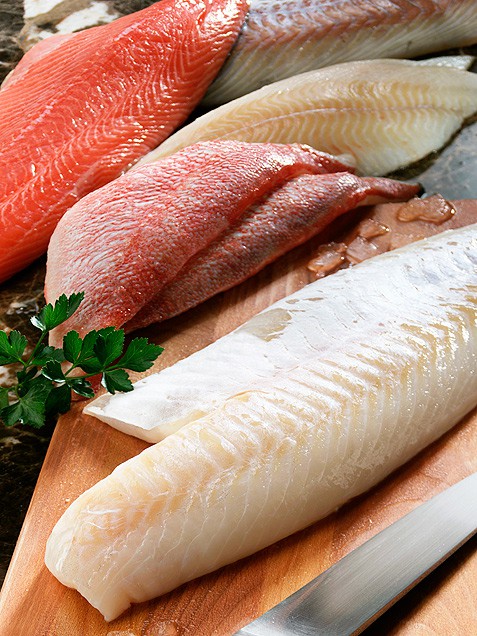
Indigestion, irritable bowel syndrome, inflammatory bowel diseases…if your belly always seems to be in an uproar, try munching 18 ounces of fish weekly to ease your misery. Repeated studies show that the fatty acids in fish, called EPA and DHA, can significantly reduce intestinal inflammation, cramping and belly pain and, in some cases, provide as much relief as corticosteroids and other prescription meds. “EPA and DHA are powerful, natural, side effect-free anti-inflammatories, that can dramatically improve the function of the entire gastrointestinal tract,” explains biological chemist Barry Sears, Ph.D., president of the Inflammation Research Foundation in Marblehead , MA . For best results, look for oily fish like salmon, sardines, tuna, mackerel, trout and herring.
Prevent PMS with yogurt

Up to 80 percent of women will struggle with premenstrual syndrome and its uncomfortable symptoms, report Yale researchers. The reason: Their nervous systems are sensitive to the ups and downs in estrogen and progesterone that occur naturally every month. But snacking on 2 cups of yogurt a day can slash these symptoms by 48 percent, say researchers at New York ’s Columbia University . “Yogurt is rich in calcium, a mineral that naturally calms the nervous system, preventing painful symptoms even when hormones are in flux,” explains Mary Jane Minkin, M.D., a professor of gynecology at Yale University .
Tame chronic pain with turmeric
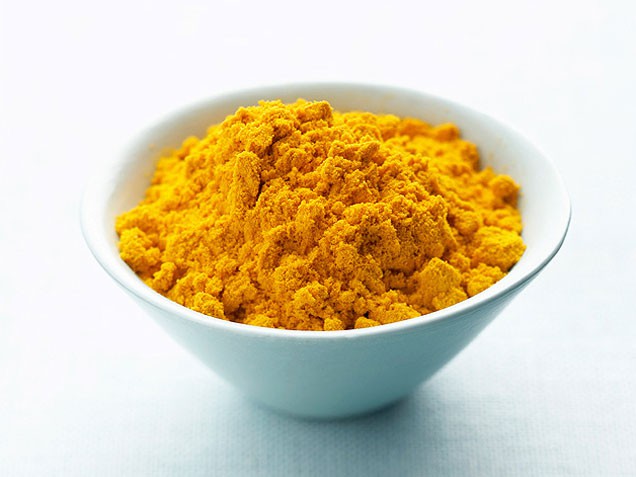
Studies show turmeric, a popular East Indian spice, is actually three times more effective at easing pain than aspirin, ibuprofen or naproxen, plus it can help relieve chronic pain for 50 percent of people struggling with arthritis and even fibromyalgia, according to Cornell researchers. That’s because turmeric’s active ingredient, curcumin, naturally shuts down cyclooxygenase 2, an enzyme that churns out a stream of pain-producing hormones, explains nutrition researcher Julian Whitaker, M.D. and author of the book, Reversing Diabetes. The study-recommended dose: Sprinkle 1/4 teaspoon of this spice daily onto any rice, poultry, meat or vegetable dish.
End endometrial pain with oats
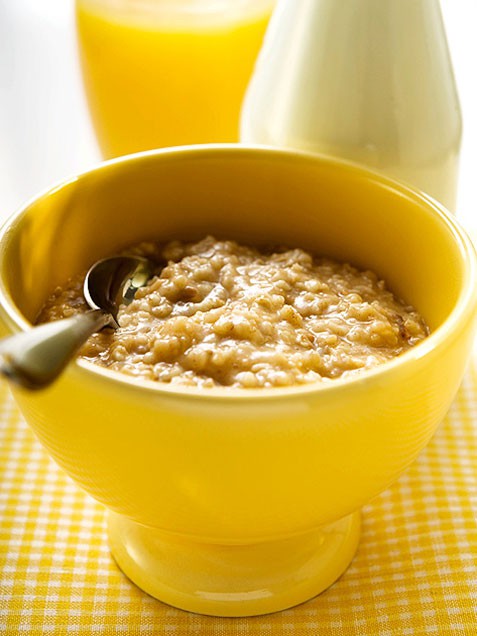
The ticket to soothing endometriosis pain could be a daily bowl of oatmeal. Endometriosis occurs when little bits of the uterine lining detach and grow outside of the uterus. Experts say these migrating cells can turn menstruation into a misery, causing so much inflammation that they trigger severe cramping during your period, plus a heavy ache that drags on all month long. Fortunately, scientists say opting for a diet rich in oats can help reduce endometrial pain for up to 60 percent of women within six months. That’s because oats don’t contain gluten, a trouble-making protein that triggers inflammation in many women, making endometriosis difficult to bear, explains Peter Green, M.D., professor of medicine at Colombia University .
Soothe foot pain with salt
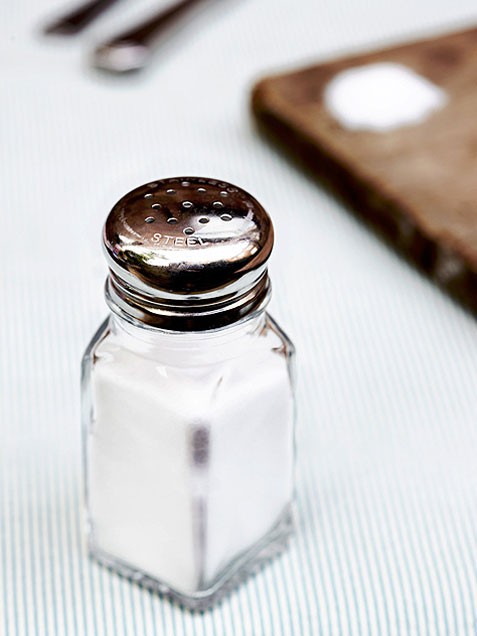
Experts say at least six million Americans develop painful ingrown toenails each year. But regularly soaking ingrown nails in warm salt water baths can cure these painful infections within four days, say scientists at California ’s Stanford University . The salt in the mix naturally nixes inflammation, plus it’s anti-bacterial, so it quickly destroys the germs that cause swelling and pain. Just mix 1 teaspoon of salt into each cup of water, heat to the warmest temperature that you can comfortably stand, and then soak the affected foot area for 20 minutes twice daily, until your infection subsides.
Prevent digestive upsets with pineapple
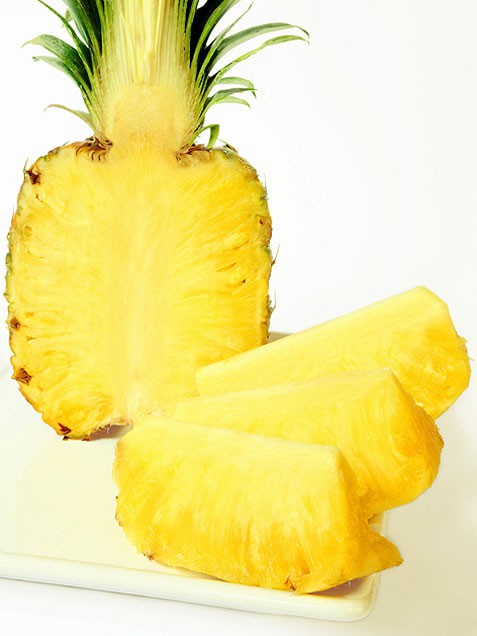
Got gas? One cup of fresh pineapple daily can cut painful bloating within 72 hours, say researchers at California ’s Stanford University . That’s because pineapple is natually packed with proteolytic enzymes, digestive aids that help speed the breakdown of pain-causing proteins in the stomach and small intestine, say USDA researchers.
Relax painful muscles with peppermint
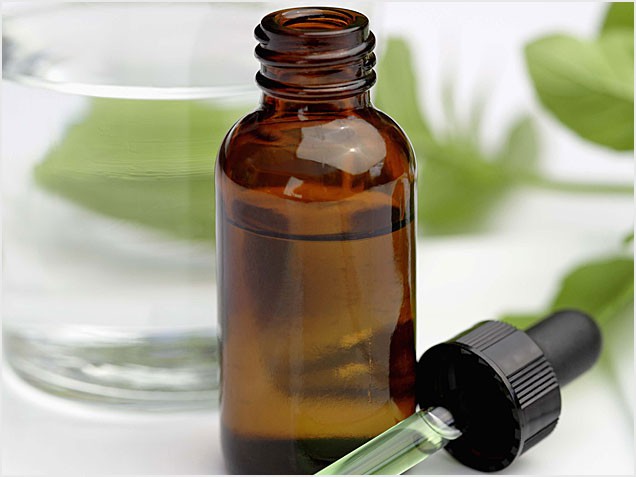
Suffering from tight, sore muscles? Stubborn knots can hang around for months if they aren’t properly treated, says naturopath Mark Stengler, N.D., author of the book, The Natural Physician’s Healing Therapies. His advice: Three times each week, soak in a warm tub scented with 10 drops of peppermint oil. The warm water will relax your muscles, while the peppermint oil will naturally soothe your nerves — a combo that can ease muscle cramping 25 percent more effectively than over-the-counter painkillers, and cut the frequency of future flare-ups in half, says Stengler.
Give your back some TLC with grapes
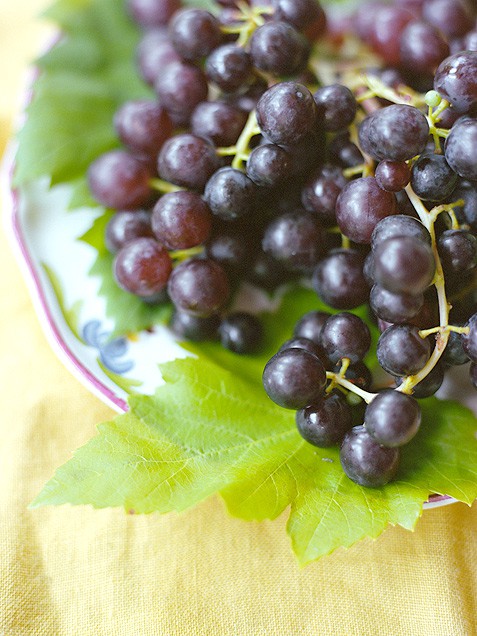
Got an achy back? Grapes could be the ticket to a speedy recovery. Recent studies at Ohio State University suggest eating a heaping cup of grapes daily can relax tight blood vessels, significantly improving blood flow to damaged back tissues (and often within three hours of enjoying the first bowl). That’s great news because your back’s vertebrae and shock-absorbing discs are completely dependent on nearby blood vessels to bring them healing nutrients and oxygen, so improving blood flow is essential for healing damaged back tissue, says Stengler.
Wash away pain injuries with water
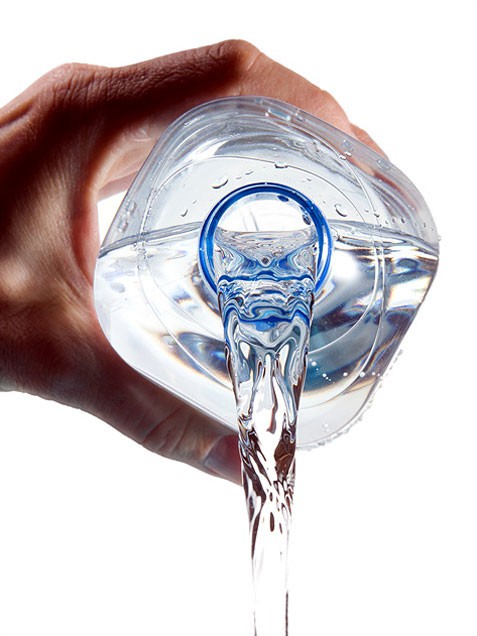
Whether it’s your feet, your knees or your shoulders that are throbbing, experts at New York ’s Manhattan College , say you could kick-start your recovery in one week just by drinking eight 8-ounce glasses of water daily. Why? Experts say water dilutes, and then helps flush out, histamine, a pain-triggering compound produced by injured tissues. “Plus water is a key building block of the cartilage that cushions the ends of your bones, your joints’ lubricating fluid, and the soft discs in your spine,” adds Susan M. Kleiner, Ph.D., author of the book, The Good Mood Diet. “And when these tissues are well-hydrated, they can move and glide over each other without causing pain.” One caveat: Be sure to measure your drinking glasses to find out how large they really are before you start sipping, she says. Today’s juice glasses often hold more than 12 ounces, which means five servings could be enough to meet your daily goal.
Heal sinus problems with horseradish
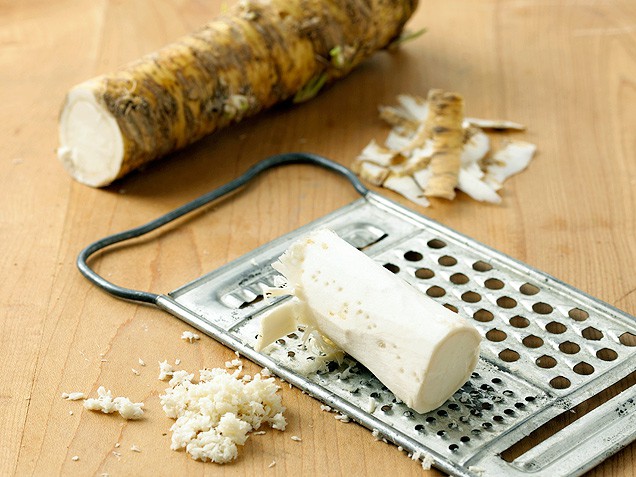
Latest studies show sinusitis is the nation’s number one chronic health problem. And this condition doesn’t just spur congestion and facial pain, it also makes sufferers six times more likely to feel achy all-over. Horseradish to the rescue! According to German researchers, this eye-watering condiment naturally revs up blood flow to the sinus cavities, helping to open and drain clogged sinuses and heal sinus infections more quickly than decongestant sprays do. The study-recommended dose: One teaspoon twice daily (either on its own, or used as a sandwich or meat topping) until symptoms clear.
Beat bladder infections with blueberries
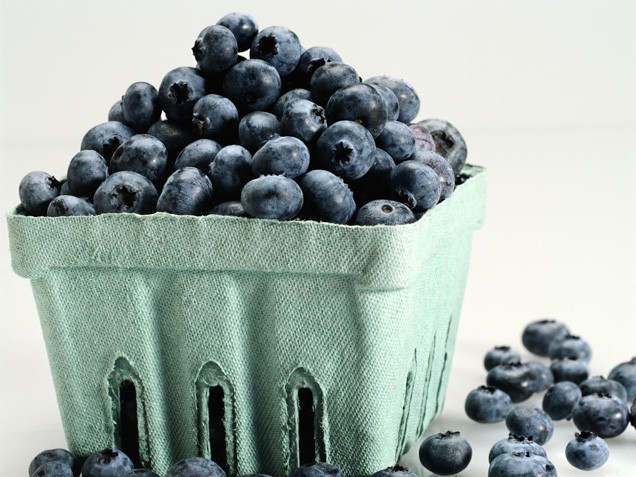
Eating 1 cup of blueberries daily, whether you opt for them fresh, frozen or in juice form, can cut your risk of a urinary tract infection (UTIs) by 60 percent, according to researchers at New Jersey’s Rutgers University. That’s because blueberries are loaded with tannins, plant compounds that wrap around problem-causing bacteria in the bladder, so they can’t get a toehold and create an infection, explains Amy Howell, Ph.D. a scientist at Rutgers University .
Heal mouth sores with honey

Dab painful canker and cold sores with unpasteurized honey four times daily until these skin woes disappear, and they’ll heal 43 percent faster than if you use a prescription cream, say researchers at the Dubai Specialized Medical Center in the United Arab Emirates . Raw honey’s natural enzymes zap inflammation, destroy invading viruses and speed the healing of damaged tissues, say the study authors.
Fight breast pain with flax
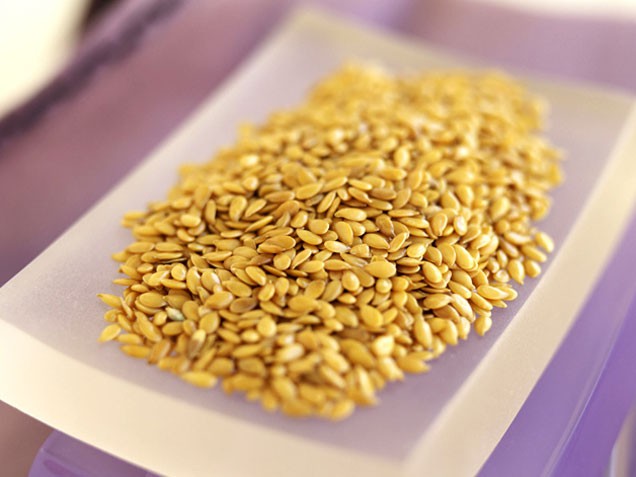
In one recent study, adding 3 tablespoons of ground flax to their daily diet eased breast soreness for one in three women within 12 weeks. Scientists credit flax’s phytoestrogens, natural plant compounds that prevent the estrogen spikes that can trigger breast pain. More good news: You don’t have to be a master baker to sneak this healthy seed into your diet. Just sprinkle ground flax on oatmeal, yogurt, applesauce or add it to smoothies and veggie dips.
Cure migraines with coffee
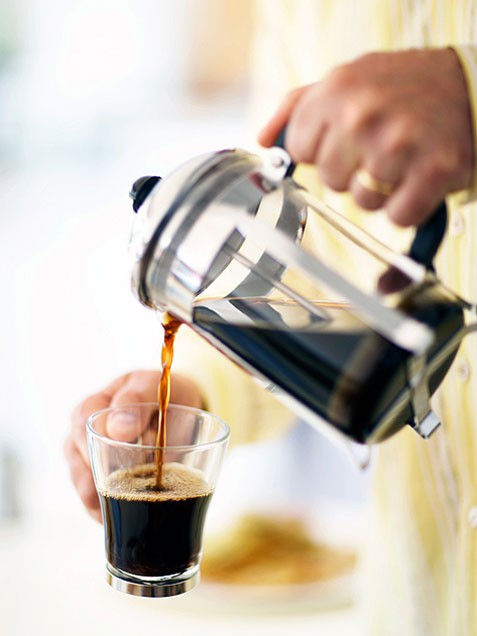
Prone to migraines? Try muscling-up your painkiller with a coffee chaser. Whatever over-the-counter pain med you prefer, researchers at the National Headache Foundation say washing it down with a strong 12- ounce cup of coffee will boost the effectiveness of your medication by 40 percent or more. Experts say caffeine stimulates the stomach lining to absorb painkillers more quickly and more effectively.
Tame leg cramps with tomato juice
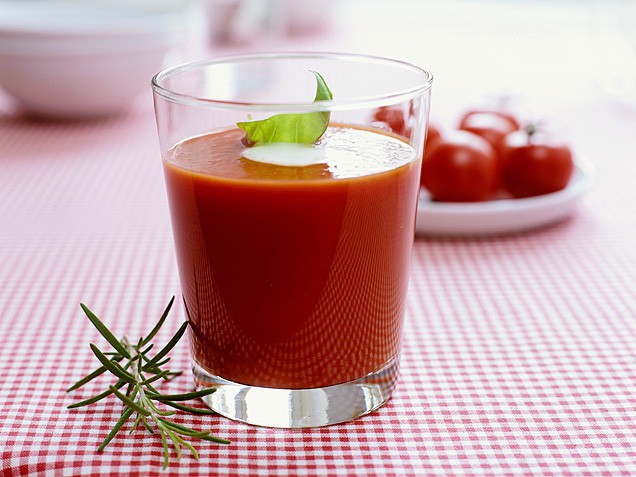
At least one in five people regularly struggle with leg cramps. The culprit? Potassium deficiencies, which occur when this mineral is flushed out by diuretics, caffeinated beverages or heavy perspiration during exercise. But sip 10 ounces of potassium-rich tomato juice daily and you’ll not only speed your recovery, you’ll reduce your risk of painful cramp flare-ups in as little as 10 days, say UCLA researchers.

It would be a gross understatement to say that much has been written about the Feast of the Dormition of the Theotokos. Yet very little has been written about the fast that precedes it.
Every Orthodox Christian is aware and generally knows the reason behind the fasts for Pascha and Christmas. But while they may know of the Dormition Fast, few follow it, and more than a few question why it is there, neither knowing its purpose. First, given the pervasive misunderstanding of the purpose of fasting itself, a refresher on its purpose is always a good idea.
There is a perception that we should fast when we want something, as though the act of fasting somehow appeases God, and seeing us “suffer” gets Him to grant our request. Nothing can be further from the truth. It is not our fasting that pleases God, it is the fruits of our fast (provided we fast in the proper mind set, and do not merely diet) that please Him. We fast, not to get what we want, but to prepare ourselves to receive what God wants to give us. The purpose of fasting is to bring us more in line with another Mary, the sister of Lazarus, and away from their sister Martha, who in the famous passage was “anxious and troubled about many things.” Fasting is intended to bring us to the realization of “the one thing needful.” It is to help us put God first and our own desires second, if not last. As such it serves to prepare us to be instruments of God’s will, as with Moses in his flight from Egypt and on Mt. Sinai, as well as our Lord’s fast in the wilderness. Fasting turns us away from ourselves and toward God. In essence it helps us become like the Theotokos, an obedient servant of God, who heard His word and kept it better than anyone else has or could.
So why do we fast before Dormition? In a close-knit family, word that its matriarch is on her deathbed brings normal life to a halt. Otherwise important things (parties, TV, luxuries, personal desires) become unimportant; life comes to revolve around the dying matriarch. It is the same with the Orthodox family; word that our matriarch is on her deathbed, could not (or at least should not) have any different effect than the one just mentioned. The Church, through the Paraklesis Service, gives us the opportunity to come to that deathbed and eulogize and entreat the woman who bore God, the vessel of our salvation and our chief advocate at His divine throne. And as, in the earthly family, daily routines and the indulgence in personal wants should come to a halt. Fasting, in its full sense (abstaining from food and desires) accomplishes this. Less time in leisure or other pursuits leaves more time for prayer and reflection on she who gave us Christ, and became the first and greatest Christian. In reflecting on her and her incomparable life, we see a model Christian life, embodying Christ’s retort to the woman who stated that Mary was blessed because she bore Him: blessed rather are those who hear His word and keep it. Mary did this better than anyone. As Fr. Thomas Hopko has stated, she heard the word of God and kept it so well, that she of all women in history was chosen not only to hear His Word but give birth to it (Him). So while we fast in contemplation of her life, we are simultaneously preparing ourselves to live a life in imitation of her. That is the purpose of the Dormition Fast.
When the assumption of thine undefiled body was being prepared, the Apostles gazed on thy bed, viewing thee with trembling. Some contemplated thy body and were dazzled, but Peter cried out to thee in tears, saying, I see thee clearly, O Virgin, stretched out, O life of all, and I am astonished. O thou undefiled one, in whom the bliss of future life dwelt, beseech thy Son and God to preserve thy people unimpaired.
(Sticheron after the Gospel, Orthros)
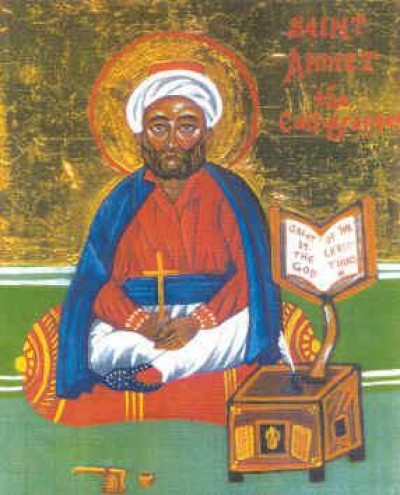
Ahmed was born in the seventeenth century to a Muslim family in Constantinople. By profession he was a copyist in the Great Archives. In accordance with Ottoman law, since he did not have a wife, he had a slave instead, a Russian woman. There was also another captive from Russia that lived together with her. She was an old woman. Both of these women were very pious.
On the feast days of the Orthodox Church, the old woman would go to Church. Taking the blessed bread or antidoron* from the priest, she would bring it home to give to the young woman to eat. The old woman would also bring her Holy Water to drink. Whenever this occurred and Ahmed was close to her, he would smell a beautiful and indescribable fragrance coming out of her mouth. He would ask her what she was eating that made her mouth smell so fragrant. Not realizing what was happening, the slave woman would say that she was not eating anything special. However, Ahmed persisted in asking her about this phenomenon that was happing. Eventually she told him that she was eating the bread which had been blessed by the priests which the old woman brought her whenever she returned from Church.
On hearing this, Ahmed was filled with longing to see the Orthodox Church and how Orthodox faithful received the blessed bread. Therefore he summoned an Orthodox priest and told him to prepare a secret place for him so that he could go when the Patriarch was serving the Divine Liturgy. When the appointed day arrived and dressed as an Orthodox Christian, he went to the Patriarchate and attended the Divine Liturgy. While he was in Church, he saw the Patriarch shining with Light and lifted up off of the floor as he came out of the altar and through the holy doors to bless the people. As he blessed, rays of Light came from his finger tips, but though the rays fell on the heads of all the Orthodox faithful, they did not fall on Ahmed’s head. This happened two or three times and each time Ahmed saw the same thing. Thus, Ahmed came to believe in the Orthodox Faith. Without hesitation he then sent for an Orthodox priest to baptized in the faith. Ahmed kept his conversion to the Orthodox faith secret for some time, concealing his baptismal name which is why it is unknown to us today.
However, one day Ahmed and certain noblemen were eating together. Afterwards they sat talking and smoking, as is the custom amongst Muslims. In the course of the conversation they began to discuss what they thought was the greatest thing in the world. Each gave his opinion. The first guest said that the greatest thing in the world was for a man was to have wisdom. The second guest maintained that women were the greatest thing in the world. And then the third guest said that the greatest thing in the world, and by far the most delightful, was good food—for was this not the food of the righteous in paradise?
Then it was Ahmed’s turn to give his opinion on the matter. Filled with holy zeal, Admed cried out that the greatest thing in the entire world was the Orthodox Faith of the Christian people. And then confessing himself to be a Christian, he boldly censured the falseness and deception of the Muslim faith. At first, on hearing this, the Muslims were aghast. Then, filled with unspeakable rage, they fell on Ahmed and dragged him off to the Muslim judge to be judged by sharia law so that he could be sentenced to death. He was beheaded, receiving the crown of martyrdom on the orders of the ruler on May 3, 1682.
*Antidoron or bread offering for the Divine Liturgy is the bread that is used at the Eucharistic service. What is not consecrated in the Liturgy is cut up into small squares and is distributed to the faithful at the conclusion of the Divine Liturgy. The word antidoron literally means in place of the Gifts. In other words, all the faithful who attend the Divine Liturgy receive something that has been blessed at the service whether they receive Holy Communion or not. The Gifts is in reference to the Body and Blood of Christ, Holy Communion, so those who do not receive Holy Communion on that particular day still receive something that has been blessed at the service.
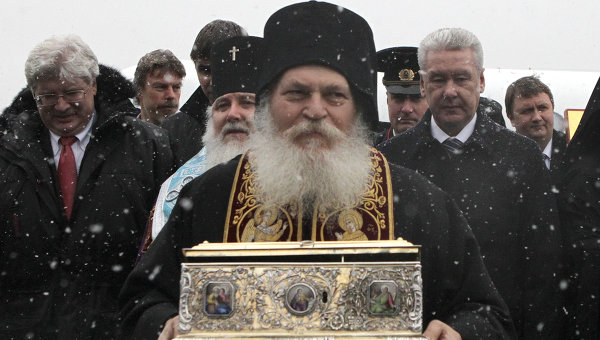
The Hagiorite Orthodox monasticism is not isolated from the world; it is not unsociable. On the contrary, one might say that the genuine monk is more sociable than the laity, since he directly communicates with the supreme social Being, the Creator of man and society: the Lord. As hagiorite monks we ache and worry about the future of man theses days. Many discontented people visit the Holy Mountain, distraught by impossible troubles which cause a deadlock. The wrong way of living is the main culprit for all the hardships; that is, life outside the Church.
Our times are such that everything surrounding us and our values is going through a crisis. Scientific and technological advances affect our social lives; consumerism, hedonism, the ideological chaos and the abundance and confusion of theories as well as globalization indicate that modern man finds himself at a crucial turning point in his history.
Under these circumstances, it is very difficult even for a thoughtful adult to have a clear cut idea of his status and recognize what his truly personal options are without being swayed by other factors or to understand where he can move freely and how he is being dominated by something or someone. If this is tricky for a mature person imagine how complicated it is for a student or a pupil, who also have to deal with their hitherto unrecognizable fits and starts at an age when they ought to establish their personalities and create their own identity!
Education is an institution which aims to cultivate one as a person, to develop his spiritual values and complete his personality. The Ancient Greek philosopher, Plato, used to say: “All knowledge when separated from justice and virtue is seen to be cunning and not wisdom” (Plato Collected Dialogues: Menexenus: p 196, 246e-247a). If our ancestors thought that knowledge cultivates the soul through virtue and it that it is not an external acquisition, how are we supposed to deal with it since we are not only orthodox Christians but also the descendants of the ancient Greek philosophers, the Apostles and of the Great Fathers of our Church?
In every country, education is irrevocably connected to its history, its culture and its tradition. In our island, Cyprus, Orthodoxy was the model on which education was based, since it was a shaping, life-giving factor, not just for Education but for other institutions as well.
After the British rule which lasted almost a century, foreign elements intruded into our orthodox tradition. Especially after the ‘May 1968 movement’, which begun in France and influenced the moral and social fabric of our society with the so-called sexual liberation, the denunciation of institutions, of social structures and of religion, Education changed and followed the trends and the demands of the times. It complied with the theory of usefulness and it concentrated in producing graduates who would produce, consume, develop and make money; in other words it promoted the economic and technological advancement in a bizarre way. Thus Education no longer meets the existential needs of a person, neither does it deal with moral issues or cultivate virtue; it is indifferent to religion and does not wish to be defined as ‘orthodox’.
We have unfortunately learnt that nowadays our Educational system, at all three levels, does not contribute towards the formation of a responsible, well rounded person, the true person, the traditional orthodox Cypriot. Even at the elementary level there is an attempt to cut off pupils from their traditional roots. Moreover, many intellectuals wish to modernize and secularize the Church and remove the Christian faith from the state; that is, they wish the Church to “conform to this world” (Romans 12, 2) in order to seemingly modernize it. These things cause distress and a lot of pain to the faithful and to those who love our country. Pray, where do all these take place? They take place in Cyprus, the mainly orthodox and culturally esteemed island of the Saints.
Our Educational system seems to be the product of the modern technological explosion which splits the body from the spirit, dividing man and steering him towards materialism. It deprives him of the ability to genuinely hope, to be honest in his transactions and his conscience and to remain free inside. It mostly supports his ability to move freely in scientific circles, finally feeding him with dry knowledge and education, which according to St Paul merely “puffs him up” (A Corinthians 8, 1). That is, it makes him proud, egoistic, selfish and generally speaking, full of passions. The main purpose of those who attend the Lyceum and the universities is to find a job. Of course this is what they must aim at, but it must not be their only aspiration.
Education as a measure of quality must seek to regenerate one’s heart and transform his soul. It must not seek productivity or meet the needs of the state. It must be independent from these in order to produce free persons, whom it will steer towards self-perception and the knowledge of God and will offer them a comprehensive education, which will transform them. It must not deform them with the supply of dry knowledge or make them chase after grades, inciting their attachment to the ephemeral materialism.
Teachers and those responsible at the Ministry of Education should aim to offer a proper education to the young ones, i.e. an education in Christ. They should travail in birth until “Christ is formed” in their hearts as St Paul says (Galatians 4, 19). The school and the university ought to become spiritual wombs in which a person, man in Christ, will be able to grow and mature spiritually. The school ought to cultivate genuine, eternal persons through Grace, which will be complete in the image of the only true and eternal person, Christ. This can be accomplished with the cooperation of the Church. It is only in the Orthodox Church that Christ and spiritual life are experienced. The Church is not an administrative body, a human institution, but a god-man institution; it is the body of Christ.
Teenagers and young people will not attain a high quality of life through the upgrade and renewal of the external, educational means; but this kind of life is the effulgence of the performance of someone who is cultivated inside through the Holy Spirit. It is the kind of life achieved through the compliance and the sensitization of those people who leave their mark on the lives of the young. However, we are not here to apportion blame but to sensitize people’s hearts.
Pupils and students ought not to think and act for their interest; they ought not to choose a profession to gratify their pride and their self-interest regardless of whether it will undermine them as persons. In the old days, one would choose his profession according to his skills and his abilities, namely his aptitude. These days, unfortunately the choice depends on the resulting social status or its economic prospects. Thus, one’s ability comes second. This trend is aggravated by unemployment and the fact that youngsters can no longer follow the profession they like. In this way a job often becomes servitude.
When choosing his profession a young person, who is faithful, ought to also take into account the prospects for his personal advancement and his culmination in Christ, which is a Christian’s main mission. (St Gregory of Nyssa: What is the name of a Christian or his profession?) One’s profession ought not to be seen independently but must constitute a means to advance one’s life in Christ. The Christian is called to discharge his professional duties “as to the Lord and not unto men” (Colossians: 3, 23).
All professions are good -from the road cleaner to the university professor- so long as they are performed honestly, conscientiously and meticulously. The Lord placed our forefathers in Paradise to “work it and keep it” (Gen. 2, 15).Even Christ, in His life on earth, was working as a carpenter. St Basil, the Great, says that the Church has hunters, builders, farmers, shepherds, athletes and solders as its members; each one of them ought to discharge his duties conscientiously. (St Basil: Homily on “watch thyself”). The various professions ought not to just meet a person’s needs but benefit others as well. St Paul urges each one of the Ephesians to “labor, doing honest work with his own hands, so that he may have something to share with anyone in need” (Ephesians 4, 28).
Any pupil, student or worker will be consistent in his job, his relationship with others and the Lord, if he has recognized the true meaning of his life. Namely, to accomplish his personal sanctification, his deification, which is the final objective for the creation of man.
For this reason blessed Elder Justin Popovic from Serbia was stressing that everyman is called to sanctification. Thus, a scientist may become a holy scientist, a philosopher- a holy philosopher, a farmer- a holy farmer, a rich man – a holy rich-man, a pauper- a holy pauper, an old man –a holy old man, a student- a holy student and a pupil – a holy pupil. (Justin Popovic: Man and God-Man)
This means that the evangelic message of sanctification can be applied by any man, of any social standing at any age. The struggle to attain sanctification gives life its true meaning. This struggle, albeit hard, is also sweet and full of joy, since divine Grace is walking along with the fighter. Man becomes sanctified by participating in the uncreated divine energies, irrespective of whether he is at the stage where he is struggling to cleanse himself from the passions or has attained illumination or has reached the final stage of deification. He who tries to become sanctified constantly strives to increase, advance spiritually, touch and taste dispassion. Dispassion according to St John Climax is “a never-ending perfection” (St John Climax: Climax: Homily 19th). He who experiences dispassion, i.e. sanctification, is experiencing a lasting, intense spiritual state. This state, which is the experience of divine Grace, cannot be compared to any joy or experience on earth.
If the young ones are to be better placed against Education and be able to choose the right profession so that Education will not be diluted and transformed into a job-finding vehicle, they ought to give up seeking worldly knowledge but strive to attain spiritual knowledge as described by St Paul. They ought not to seek to appease their selfish, money-oriented interests while ignoring and impinging on their spiritual needs. On the other hand, parents but realize that children are not their property but independent, unique persons. The usual habit parents have in trying to realize their own aspirations and designs through their children, torments their offspring.
Finally, educators- teachers and university professors- ought to recognize that genuine education shapes people who will offer themselves and their skills to serve others. If this is to be achieved, educators ought to demonstrate an honest and genuine care in their teaching and not simply discharge a barren, professional duty with the ultimate aim to make money. They ought to be deeply conscientious, intellectually and spiritually mature and be ready to sacrifice themselves; in addition they ought to live a pure life with integrity and orthodox conscience and ought to acquire sincere faith in Christ. Both teachers and pupils ought to learn at the great school, called Church.
source: Translated by Olga Konari Kokkinou from the Greek edition: Αρχιμ. Εφραίμ Βατοπαιδινού Καθηγουμένου Ι. Μ. Μ. Βατοπαιδίου, Αθωνικός Λόγος, Ιερά Μεγίστη Μονή Βατοπαιδίου, Άγιον Όρος 2010.

The spiritual life, the Christian life, does not consist in developing a strong will capable of compelling us to do what we do not want. In a sense, of course, it is an achievement to do the right things when we really wish to do the wrong ones, but it remains a small achievement. A mature spiritual life implies that our conscious will is in accordance with the words of God and has remolded, transformed our nature so deeply, with the help of God’s grace, that the totality of our human person is only one will.
To begin with, we must submit and curb our will into obedience to the commandments of Christ, taken objectively, applied strictly, even when they clash with what we know about life. We must, in an act of faith, admit against the evidence that Christ is right. Experience teaches us that certain things do not seem to work as the gospels say they should; but God says they do, so they must. We must also remember that when we fulfill God’s will in this objective sense, we must not do it tentatively, thinking of putting it to the test, to see what comes of it, because then it does not work. Experience teaches us that when we are slapped on the one cheek, we want to retaliate; Christ says ‘turn the other cheek’. What we really expect when we finally determine to turn the other cheek is to convert the enemy and win his admiration. But when instead we are slapped again, we are usually surprised or indignant, as though God has cheated us into doing something quite unworkable.
We must outgrow this attitude, be prepared to do God’s will and pay the cost. Unless we are prepared to pay the cost, we are wasting our time. Then, as a next step, we must learn that doing is not enough, because we must not be drilled into Christianity, but we must BECOME Christians…
~Metropolitan Anthony Bloom

Often has the Church proclaimed, ‘Prayer is the act from which all other good comes.’
It may seem strange that, in this statement, the source of all good is ascribed to the act and state of prayer. Certainly, all good comes from God! There is only one source of Good, and of the identity of this source there is no question. Lest any be tempted to forget, it is proclaimed at every Liturgy in the prayer before the ambo: ‘Every good gift and every perfect gift is from above, coming down from Thee, the Father of Lights’.Certainly, there is no other fount from which goodness flows than God Himself, the very essence and heart of Goodness. Good gifts are good only insomuch as they come from Him, for ‘whatever is not God, is nothing’.
Why, then, the exalted status given to prayer? If all good gifts are from God and Him only, how can we then say, ‘Prayer is the act from which all other good comes’? How is it possible to hold to the divine truth here stated, and still proclaim, as the holy Abba Agathon does in regard to prayer, that by its action it is the reconciliation of man with God, the mother and daughter of tears, a bridge for crossing temptations, a wall of protection from afflictions, a crushing of conflicts, boundless activity, the spring of virtues, the source of spiritual gifts, invisible progress, food of the soul, the enlightening of the mind, an axe for despair, a demonstration of hope, the release from sorrow.
Would it not be better for us, if we were to ascribe these gifts to God and set prayer aside as another among them?
The answer we must give–that which I am sure you will have determined I will give, based on the manner in which I posed all of the above–is certainly ‘no’. There is a mystery to prayer, or perhaps better, prayer is a great mystery, by which all other gifts are made known in their true natures, and through which they in fact come. Prayer, as the holy Church teaches, is the very source of our participation in the good gifts of God; while He remains ever the giver and one true fount of all blessings, it is only by prayer that we are brought into communion with and possession of these very blessings. St Symeon of Thessalonica writes, concerning the primacy of prayer, It is an excellent task for the servants of Christ above all others, for the other things are ministries and secondary … truly this is the task entrusted to us by God, and the crown of all else.4
If, then, this great task of prayer, this ‘crown of all else’, is the source of our possession of all that is good and blessed, what must be its nature? Surely the initial reaction had by many toward this idea, namely that our petitionary prayer must be that from which we receive all good, is negative for the very reason that a notion of prayer ultimately as spoken discussion with, or even fervent supplication to God, is itself a flawed understanding. Prayer of this sort, though it is good and holy, certainly cannot be the ultimate form and character of prayer, for it is a temporal and designated act within the scope of the ‘rest of life’. To pray in this manner is to set aside whatever predetermined (or undetermined) duration of time for prayer, to speak petitions, to offer adoration and thanksgiving, and so on. Yes, this is a holy act, and one to which we are called, one and all! But it cannot be the only form of prayer, especially not the ultimate, because it is simply impossible to engage in this kind of prayer at all times if one is truly to live a human life in this world; and the exhortation to ‘pray without ceasing’ comes directly from the great Apostle (1 Thess 5.17). If our method of prayer is such that we cannot keep the commandment of God, handed down through His elect, then we must admit a greater reality to prayer which we have yet to approach. Our prayer is good and holy by virtue of its being prayer, but there are depths we have not sounded and heights to which we have not yet climbed. These are to be found in a profound inward prayer to which we are all summoned by Christ Himself.
It is this deeper, inner prayer to which we must turn if we are to understand how prayer is genuinely the source of our communion with the blessings of God. The nature of this deeper reality is first explained by Evagrios the Solitary, writing in the fourth century: ‘Prayer is the communion of the intellect with God’.Abba Agathon, already encountered in this discussion, expanded upon Evagrios in stating that ‘Prayer by its nature is communion and union of man with God’.
Here we begin to see the true essence of deepest prayer as it has always been proclaimed by the Church. Far beyond the discourse of thought and speech with our Divine Saviour which prayer is in certain of its forms, it is much more deeply the actual union of humanity with God in Trinity, a state of being in constant communion with Him who is the Source of all. Such prayer goes beyond a mere act of the intellect, to a deep state of constant awareness of the presence of God, of dwelling with Him in all places and times, no matter what the outward activities of the body or mind. ‘He who loves God is always communing with Him as his Father’.
Thus we can see how all the outward acts of discipline, rigour and asceticism that lead to true prayer, are indeed the means by which we attain to all things good, not because these acts somehow ‘purchase’ good things for us (God forbid!), but because by them we are drawn ever closer to God Himself; that same God who is, in His essence, the very fullness of Goodness. The acts of attaining to prayer form our great motion of continual service, our personal leitourgia, by which we come into all joy; for ‘to serve God is bliss itself’.
Scripture itself proclaims the importance of prayer, the exhortation to which often seems confounding when prayer is viewed as primarily an act of petition before God (for surely He knows all our needs!), but which is only sensible when it is understood as the continuous communion of our person with God. The book of Sirach lists much that must be sought after in life, yet capstones its list thus: ‘But above all, pray to the Most High, that He may direct your way in truth’ (Sirach 37.15). The holy Paul, as we have already said, commands not only that we pray, but that we pray ‘without ceasing’ (1 Thess 5.17). Long before the Incarnation of Christ, His prophet had proclaimed that ceasing to pray–especially for others–is a sin against the Lord (1 Samuel 12.23). Yet the importance of prayer is also witnessed clearly in the fact that our Saviour Himself prayed, both in the desert where He met the demons (Matthew 4.1-11), as well as in His fatigue (Mark 1.35) and throughout the whole of His life, often with loud cries and tears. (Hebrews 5.7).
None has prayed so purely as the man Jesus Christ, nor has any known more of the blessedness of divine communion. Christ incarnate, as the very embodiment of the union of man and God, is in His person the icon of the goal of prayer; there can be no greater communion with the divine than the actual union of divine and human natures in the person of the incarnate God, Jesus Christ. And even as the Father was well-pleased with the life of prayer of His Only-Begotten Son, so will He be pleased with us when we come to pray truly, for ‘God rejoices when a man offers Him a wise prayer’.
What else could prayer be, apart from the act by which all other good comes, if prayer is, itself, our communion with the Good One? It is the source, the only source, of our possession of the blessings of God, for through it the Holy Spirit joins us together with the Giver of every gift. Unless we are united to God, we can know no blessings, we can experience no good, we can comprehend no real joy. But we are not despondent of these things, for the Spirit does indeed call us to the communion which provides them, to the prayer which makes them real in us.
The fruits of prayer are thus those of the Holy Spirit–love, joy, peace and many others — for it is only through the Spirit that we ever come to true prayer. It is He who cleanses us from every impurity, and prays within us, joining our minds and hearts to God. He thus makes us capable of receiving all the goodness of God, and our prayer gives rise to the good gifts that God grants. Should we ever doubt, St James the Brother of Our Lord reminds us, ‘The prayer of the righteous is powerful and effective. Elijah was a human being like us, and he prayed fervently that it might not rain, and for three years and six months it did not rain on the earth. Then he prayed again, and the heaven gave rain and the earth yielded its harvest’ (James 5.16-18). Christ also spoke to us of the power of prayer, when He reminded all the faithful that ‘whatever you ask for in prayer, believe that you have received, and it will be yours’ (Mark 11.24). If we are in truth united to God, then our will also is united to His and the things for which ‘we ask’ are the very gifts of His divine power–far exceeding the limitations of the world in which we dwell. Mountains can be moved and seeds turned into forests; cold and stony hearts can be warmed; the dead can be raised; light stronger and more radiant than the sun can shine forth from the souls of those with a humble and prayerful heart.
But we should not pray in order that we might receive such gifts, or any gifts at all. This was the great sin of Simon the Samaritan, who thought that the gifts of God were of more importance than God who gives them. Our prayer is to be contrite, inward, hopeful, and the fruit only of our intense love of God. It is true that all good comes to us from prayer, but it is not for our reception of the good that we pray, but only for communion with God. We must never consider ourselves worthy of God’s gifts, for then we evidence greed, and this greed leads to prayer becoming an act of pride. St Macarius reminds us,
Pray simply. Do not expect to find in your heart any remarkable gift of prayer. Consider yourself unworthy of it. Then you will find peace. Use the empty cold dryness of your prayer as food for your humility. Repeat constantly: I am not worthy, Lord, I am not worthy!
If we approach prayer with such a sense of personal unworthiness (after all, who is ‘worthy’ of having communion with the immortal and all-powerful God of the universe!), and view it not as an access to divine gifts but simply and profoundly as our source of fellowship with Christ, then He shall provide for us, through our prayers, those good things of which we have need.
When tomorrow comes, it will supply what you need, if you seek above all else the kingdom of heaven and the righteousness of God; for the Lord says: ‘Seek the kingdom of God and His righteousness; and all these things as well will be given unto you’.
In such a state, we will find ourselves pleasing to God, who works wonders in the hearts of His faithful, for the beginning of every action pleasing to God is calling with faith on the life-saving name of our Lord Jesus Christ … together with the peace and love which accompany this calling. These two, peace and love, not only make the prayer propitious, but are themselves reborn and shine forth from this prayer, like inseparable Divine rays, increasing and coming to perfection.
Love and peace go into our prayer (for it is impossible to attain to communion with God if we do not love Him); but they come forth from it far more profoundly. The good which we bring to prayer is only the fruit of what God has already brought to us through our prayer; it is this relationship of exchange that brings us together with the Source of Life and calls us to the possession of every good and perfect gift that comes down from above. In prayer, in our constant communion with the Holy Trinity, we find that beautiful flower of gentleness and of freedom from anger, of joy and all thankfulness, of remedy for every gloom and despondent thought — indeed, we find Christ Himself in the very depths of our hearts. There is no better gift than this. There is no other gift that does not come from this.
Prayer is thus the true nature and character of human life. It is that which has been made possible by the salvation granted in Christ, and that to which Christ calls each of us as heavenly children of the Father. Joining us to God, it becomes our all, and the state for which we strive with every breath. If, when praying, no other joy can attract you, then truly you have found prayer.
Ρίξτε το μεγαλύτερο βάρος του αγώνος σας στην προσευχή, γιατί αυτή θα σας κρατάει σε επαφή με το Θεό. Και η επαφή αυτή πρέπει να είναι συνεχής.
Η προσευχή είναι το οξυγόνο της ψυχής,είναι ανάγκη της ψυχής και δεν πρέπει να θεωρείται αγγαρεία.
Η προσευχή για να εισακουστεί από το Θεό, πρέπει να γίνεται με ταπείνωση, με βαθιά συναίσθηση της αμαρτωλότητάς μας και να είναι καρδιακή.
Εάν δεν είναι καρδιακή, δεν ωφελεί. Ο Θεός πάντοτε ακούει την προσευχή του ανθρώπου, που είναι πνευματικά ανεβασμένος.
Η μελέτη της Αγίας Γραφής βοηθάει πολύ την προσευχή, γιατί θερμαίνει την ψυχή και την προετοιμάζει".
Γεροντας Παϊσιος

Η Παναγία, κατά τον άγιο Ιωάννη τον Δαμασκηνό, τον μεγαλύτερο δογματικό πατέρα της Εκκλησίας μας, "κατέχει τα δευτερεία της Αγίας Τριάδος".
Δηλαδή εμείς οι ορθόδοξοι χριστιανοί μετά την Αγία Τριάδα τιμάμε την Παναγία. Μεγάλη όντως τιμή. Στο πρόσωπο της Παναγίας τιμάται το γυναικείο φύλο. Ο πιστός ελληνικός λαός τιμά ιδιαίτερα κι ευλαβείται πολύ την Παναγία.
Αυτό φαίνεται και στο ότι από τις 30.000 εκκλησίες, παρεκκλήσια κι εξωκλήσια όλης της Ελλάδος οι 6.000 είναι αφιερωμένες σε εορτές της Παναγίας και οι περισσότερες στην Κοίμηση της Θεοτόκου. Μάλιστα από τα 1.000 μοναστήρια της Ελλάδος τα 300 τιμώνται σ' εορτές της Παναγίας· Γέννηση, Ευαγγελισμός, Ζωοδόχος Πηγή, Τιμία Ζώνη, Κοίμηση. Τα στοιχεία αυτά λαμβάνουμε από τα επίσημα Δίπτυχα της Εκκλησίας της Ελλάδος του 2008.
Στο Άγιον Όρος, τα ωραία προσωνυμούμενο "Περιβόλι της Παναγίας", από τον πολύπλαγκτο Σκοπελίτη Ξηροποταμηνό μοναχό Καισάριο Δαπόντε, ονομασία που επεκράτησε, η τιμή της Παναγίας πλησιάζει τα όρια της λατρείας. Από τις 20 μονές οι 5 τιμώνται στην Παναγία. Από τις 12 σκήτες οι 3 είναι αφιερωμένες στην Παναγία. Από τα 300 κελιά περίπου τα 50 πανηγυρίζουν σ' εορτές της Παναγίας.
Κέντρο του θεομητορικού εορτασμού τον Αύγουστο στον ιερό Άθωνα είναι ο πάνσεπτος ναός του Πρωτάτου στις Καρυές. Αφιερωμένος στην Κοίμηση της Θεοτόκου. Η πολυπρόσωπη και κατανυκτική μεγάλη εικόνα του τέμπλου παρουσιάζει κατά τη βυζαντινή παράδοση τη σύνταξη των αποστόλων και πρώτων επισκόπων γύρω από τη νεκρική κλίνη της Θεοτόκου. Ο Χριστός ψηλά μετά αγγέλων να παραλαμβάνει την ψυχή της. Η ίδια εικόνα σε μικρό μέγεθος στο προσκυνητάρι. Μεγάλη και ωραιότατη ίδια παράσταση σε τοιχογραφία από τον χρωστήρα του Θεσσαλονικέως Πανσέληνου και της συνοδείας του στα τέλη του 13ου αιώνος.
Η θαυματουργή εικόνα του Άξιον Εστί δεσπόζει και λάμπει στο προσκυνητάρι της, με την κεντητή ποδιά, τα' ασημένια καντήλια, τα άνθη, τα θυμιάματα, τα' αφιερώματα, τις λαμπάδες, τις μετάνοιες, τους μύριους ασπασμούς. 15 Αυγούστου 2008 και όλο το Άγιον Όρος αγρυπνεί εκ βαθέων ψάλλοντας: "Και σε μεσίτριαν έχω προς τον φιλάνθρωπον Θεόν μη μου ελέγξη τας πράξεις ενώπιον των αγγέλων· παρακαλώ σε Παρθένε βοήθησόν μοι εν τάχει".
Η θεοτοκοφιλία μοναχών και λαϊκών είναι δικαιολογημένη, δίκαιη, πηγαία, αυθόρμητη και ειλικρινής. Η Παναγία είναι το καλύτερο που είχε να δώσει όλη η ανθρωπότητα στη θεότητα. Είναι η ωραιότερη, σεμνότερη, ταπεινότερη και ιερότερη γυναίκα του κόσμου
Μοναχός Μωϋσής, αγιορείτης


























